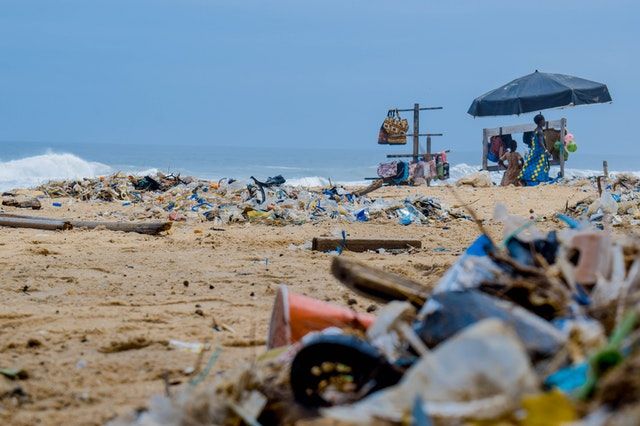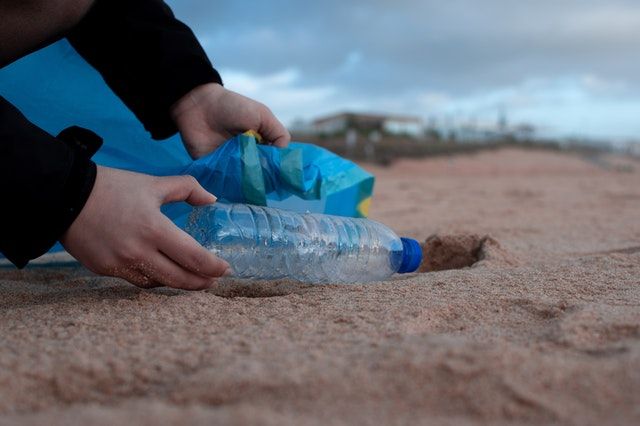Introduction

Lucien Wanda www.pexels.com
Beach cleaning or clean-up is the process of removing solid litter, dense chemicals, and organic debris deposited on a beach or coastline by the tide, local visitors, or tourists. Humans pollute beaches with materials such as plastic bottles and bags, plastic straws, surgical mask, fishing gear and cigarette filters and many other items that often lead to environment damage. Every year hundreds of thousands of volunteers comb beaches and coastlines around the world to clean this debris. These materials are also called “marine debris” and “marine pollution” and their quantity has been increasing due to globalisation and people using more plastic.
Cleaning the beach also improves the coastal and ocean ecosystem by making sure that none of the trash kills marine life or is toxic enough to disrupt the marine life cycle.
If you're looking to make a difference, hosting a beach clean up is a great way to make the ocean safe and pleasant for both animals and people. You'll need to plan well and recruit volunteers that are just as passionate as you are, but the clean beach you see afterwards will be worth it all.
Task

Marta Ortigosa www.pexels.com
Beaches are recreational areas and attract many local and international visitors through swimming, sunbathing, walking or water based activities and even for dog walking. This coastal tourism is important for many countries because tourism activities contribute to a large facet of their economy. Therefore, a polluted beach or coastline may substantially impact a country's economy negatively.
Your task as an entrepreneur is to check your local beach which is very popular with kayaking, walking, swimming, sunbathing, dog walking (where allowed) jogging, bird watching and fishing and check if it is clean and ready for the summer surfers’ season. You also organise annual beach clean up and all the volunteers contact you regarding how to join the clean up. You are aware if the surfers do not find their expectation met on a beach, they can travel to other beaches to find a better one in the neighbouring city. So your role of ensuring your beach cleanliness is very important for your town and all the surrounding small businesses.
Process
You need to undertake a 'site' visit to one of your local beach (if you have not got a beach maybe you can visit one of your local tourist attraction i.e. park). and check if the area is clean and suitable for tourists and for kayaking, walking, swimming, sunbathing, dog walking (where allowed) jogging, bird watching and fishing. You will also need to ensure you have in place all the correct and up to date information for volunteers who will help with clean up and support you during the peak tourist season.
Look through the Resources section and read the documents attached to gain some insight into what you need to be looking out for as an organiser of the beach clean up.
In the Resources section there is a document titled Process that has all the 'Frequently Asked Questions' (FAQ) that you will need when working with volunteers.
Conclusion
Clean-ups are wonderful opportunities to do large scale rehabilitation work in our beaches. Organising beach clean ups is serious business and indeed takes time, effort and passion but having a clean beach and seeing others enjoy it is worth all the hard work. Taking responsibility for our own plastic rubbish is already a step in the right direction. Becoming mindful of how we use and dispose things is one way that we can start making this world and our oceans better for the next generation.
Learning Outcomes
- 1.10) I can develop (alone or with others) an inspiring vision for the future that involves others.
- 1.13) I can tell the difference between social, cultural and economic value.
- 1.16) I can identify practices that are not sustainable and their implications for the environment.
- 2.21) I can use various methods, including social media, to communicate value-creating ideas effectively.
- 3.1) I can take individual and group responsibility to carry out simple tasks in value-creating activities.
- 3.5) I can create an action plan which identifies the necessary steps to achieve my goals.
- 3.16) I can work with a range of individuals and teams.












